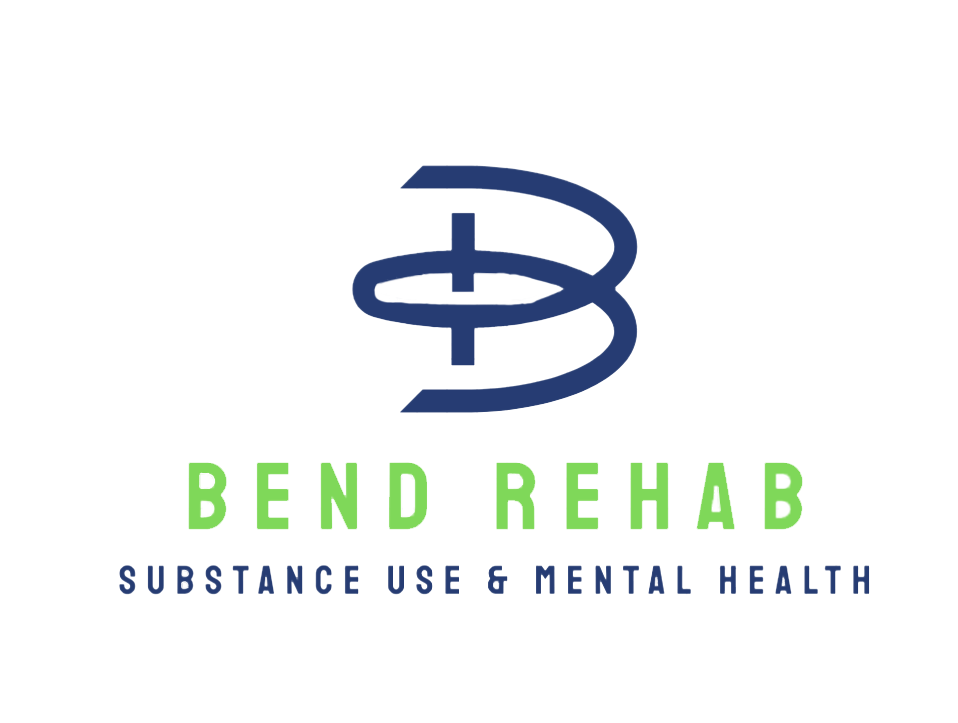What is Motivational Interviewing?
At Bend Rehab, we understand that the journey to recovery from addiction and mental illness is deeply personal and often filled with challenges. That’s why our approach to Motivational Interviewing in Bend stands out as a beacon of hope for those seeking a way forward. This client-centered counseling style enhances motivation by helping individuals explore and resolve ambivalence, empowering them to find their own reasons for making positive changes.
Our skilled practitioners are trained in the art of motivational interviewing, which is more than just a set of techniques; it’s a way of being with clients that promotes growth and change out of respect and compassion for their struggles. By engaging in this therapeutic conversation, clients are able to uncover their intrinsic motivations, improving their confidence in their ability to change. This method has shown remarkable efficacy in treating both addiction and mental illness because it addresses the root causes of these conditions without judgment or coercion.
At Bend Rehab, we believe in harnessing the power of empathy and understanding to guide our clients towards recovery. Our motivational interviewing sessions are tailored to each individual’s needs, creating a safe space where they can openly discuss their fears, hopes, and dreams. Through this collaborative process, we help our clients develop coping strategies that align with their values, fostering long-lasting change.
Embarking on a path toward healing at Bend Rehab means you’re not just receiving treatment; you’re gaining a partner who believes in your capacity to transform your life. Let us be part of your journey toward wellness through the empowering practice of Motivational Interviewing in Bend.
How Motivational Interviewing Helps
Motivational Interviewing (MI) is a powerful therapeutic approach that has been proven to be highly effective in promoting behavior change. It involves a collaborative and client-centered approach, where the therapist works with the individual to explore their own motivations and values, while also helping them identify potential barriers to change.
In our Bend rehab center, we incorporate MI techniques into our content writing process to not only educate our readers but also motivate them towards making positive changes in their lives. This unique approach allows us to connect with our audience on a deeper level and inspire them to take action towards better health and wellness.
One of the key components of MI is building rapport and establishing a strong therapeutic alliance between the therapist and the client. Similarly, when creating content for our website, we strive to build a trusting relationship with our readers by providing accurate and helpful information in a compassionate and non-judgmental manner.
Another important aspect of MI is the emphasis on autonomy and self-discovery. As content creators, we understand that each individual has their own unique experiences and perspectives. Therefore, we aim to create content that allows our readers to explore their own motivations and values while also providing them with the necessary tools and resources to make informed decisions about their health.
MI also recognizes that change can be challenging, and often individuals may encounter barriers or resistance when trying to make positive changes in their lives. Our content addresses these potential barriers and offers practical solutions for overcoming them.
What We Treat

Addiction Treatment
Our addiction treatment programs provide personalized, compassionate care to help you regain control of your life, supported by a committed community and proven methods.
Learn More
Mental Health Treatment
We at Bend Rehab take a comprehensive approach to mental health care, providing a nurturing space where you can heal and develop the tools needed for long-term well-being.
Learn More
Co-Occurring Disorder Treatment
Our multidisciplinary team of experts works collaboratively to ensure that all aspects of our patients' health are being addressed, fostering an environment of healing and recovery.
Learn MoreFAQ
We've compiled a list of frequently asked questions to provide clarity on the experience and alleviate any remaining fears or anxieties you might have.
A day in addiction rehab is designed to provide a structured and supportive environment focused on physical, mental, and emotional recovery. Mornings typically start early with a healthy breakfast, followed by a schedule of therapy sessions, group activities, and workshops aimed at addressing the underlying causes of addiction. These may include one-on-one counseling, group and family therapy, fitness classes, educational sessions, and recreational activities. Throughout the day, individuals are provided with nutritious meals, time for relaxation, and opportunities for personal growth through journaling or meditation. Evenings often feature peer support meetings or 12-step programs before winding down for the night. Each day is thoughtfully organized to promote a holistic approach to recovery and help individuals build healthier habits and coping strategies.
A detox period generally lasts about five days but can range from three to 10 days. The length of detox varies depending on factors such as the type of substances used, the amount and frequency of use, the duration of use, and the method of administration. These factors help determine the appropriate length of detox for you or your loved one.
When entering addiction treatment, certain items are recommended to support your comfort and well-being. These can include comfortable clothing, personal hygiene products, properly documented prescription medications, and journals or books for reflection. However, some items are prohibited in treatment facilities, such as drugs, alcohol, weapons, or anything that could disrupt the recovery process. It's important to check with your chosen facility beforehand for a detailed list of allowed and restricted items to ensure a smooth transition into treatment.
At Drug Abuse and Addiction, we recognize the strong connection between addiction and mental health challenges. That’s why our treatment centers focus on addressing both addiction and the underlying mental health issues that often accompany it. Our experienced team provides care for conditions such as depression, anxiety, PTSD, and more, taking a holistic approach to recovery that meets both physical and mental health needs. Our admissions team works to match you with the right facility offering comprehensive care tailored to your unique situation. We’re here to guide and support you on your journey to lasting sobriety and better mental health.
Our admissions team at Drug Abuse and Addiction is here to guide you in finding the right treatment center to meet your needs. Choosing a rehab center can feel overwhelming, but we are here to make the process easier. Our compassionate and experienced team understands the complexities of addiction and the importance of personalized care. We take into account your unique circumstances, preferences, and any co-occurring conditions to connect you with a facility that provides customized support. You don’t have to navigate this journey alone – we’re here to support you every step of the way toward lasting recovery.
Seeing someone you care about struggle with addiction can be incredibly difficult and overwhelming. You may feel unsure about how to help them, but the journey starts with an open and honest conversation. Share your concerns, offer your support, and encourage them to seek professional help, while also setting clear boundaries. Researching treatment options and having resources ready can also make a big difference.
It's important to stay patient, understanding, and supportive throughout this process—recovery is a journey that takes time. With the right support and approach, your loved one can work towards a healthier, addiction-free life. Don’t hesitate to reach out to our team at Drug Abuse and Addiction for guidance. We’re here to assist you and your loved one every step of the way on the road to recovery.
No matter how committed you are to your recovery journey or maintaining lifelong sobriety, the risk of relapse is always present. According to the National Institute on Drug Abuse, relapse rates during recovery fall between 40% and 60%. Experiencing a relapse can bring feelings of shame or regret, and you might even consider giving up rather than continuing to fight against the urge to use. While these emotions are natural, they can hinder your path to a drug-free life. Instead, treat relapse as a chance to learn and grow—refine your prevention plan, identify triggers, and understand the reasons behind the setback. This approach can help you rebuild a stronger foundation for recovery.
The first step is determining whether returning to rehab is necessary. If the relapse was an isolated incident and you’re committed to reviewing and adjusting your recovery plan, inpatient treatment might not be required. Inpatient facilities offer hands-on care and consistent monitoring, but if substance use has become a pattern again, it may be essential to reenter a structured program. Warning signs like conversations about substance use, spending time with people who encourage drinking, or using substances to cope suggest a deeper issue that requires immediate attention.
If you do return to treatment after a relapse, the focus should be on successfully transitioning back into daily life. Spending a few months in a sober living environment can be invaluable, as it provides structure and accountability during the critical early stages of recovery. Additionally, setting up an outpatient therapy plan for continued support after rehab can further reduce the risk of relapse.
Begin your journey to recovery and mental wellness today with us at Bend Rehab, where compassionate support and personalized treatment plans pave the way for a healthier, happier you.

Verify Your Insurance With Us
Freeing yourself from Addiction doesn't have to be hard. Take the first Step and begin filling out the form, it's the initial phase in achieving a healthy recovery. We offer the necessary guidance and professional care crucial during the early treatment stages.




